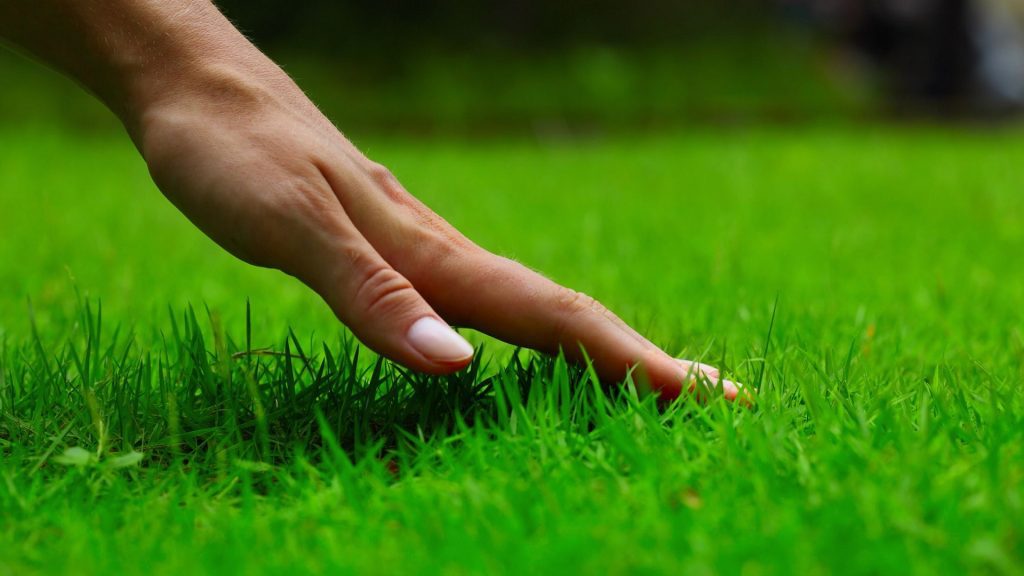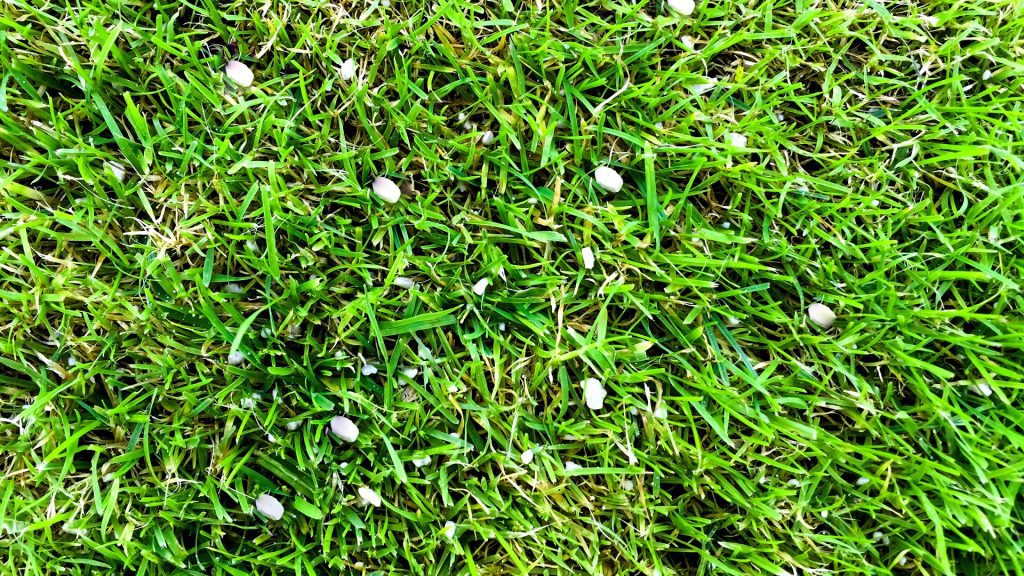
Lawn Fertilizer: Can You Do Too Much?
Fertilizer is often touted as one of the best things you can do for your lawn; giving it the nutrients it needs to thrive. Although beneficial, there is such a thing as doing too much when it comes to fertilizer, so you have to be careful with its application.
Can you over-fertilize your lawn? Yes, it is possible to apply too much fertilizer to your lawn, leading to issues like fertilizer burn, more maintenance, more weeds, poor drainage, and imbalanced pH levels in the soil. Therefore, following the fertilizer’s guidelines is essential for getting it just right.
For all of the benefits it brings, fertilizer does come with some downsides if you’re not careful. This guide will look at the issues that arise when you apply too much fertilizer and what you can do to reverse the damage.
Can You Over Fertilize Your Lawn?
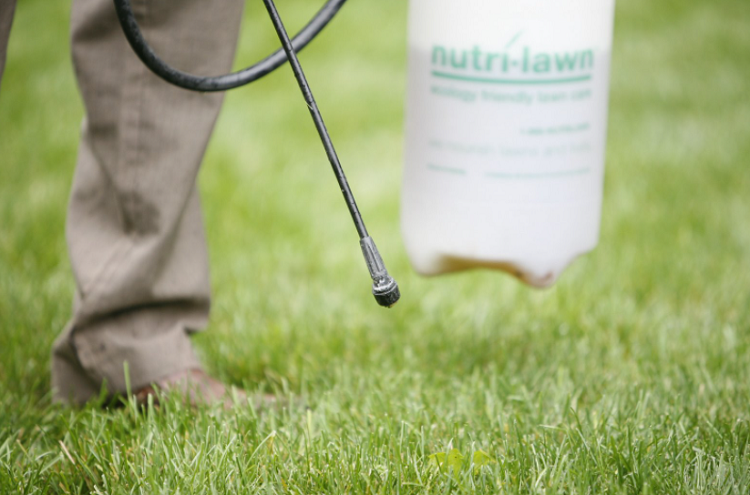
Fertilizer is usually applied to plants and grass to improve their growth, but it is possible to use too much and have an adverse effect.
If you don’t follow the guidelines for a fertilizer product and end up applying more than you should, it could potentially damage your grass for good.
As well as using too much fertilizer in a single application, you can apply fertilizer too many times in a year, which can be just as bad.
Depending on your lawn’s specific requirements and the type of fertilizer you use, you should fertilizer between once and three times a year, and nothing more.
All lawns require unique things when it comes to fertilizers and all fertilizers are made uniquely.
Each time you apply fertilizer, it needs to be a calculated approach where you figure out what nutrients need balancing, the current condition of the soil, and how much fertilizer is recommended for the area of lawn you’re treating.
Downsides to Too Much Fertilizer
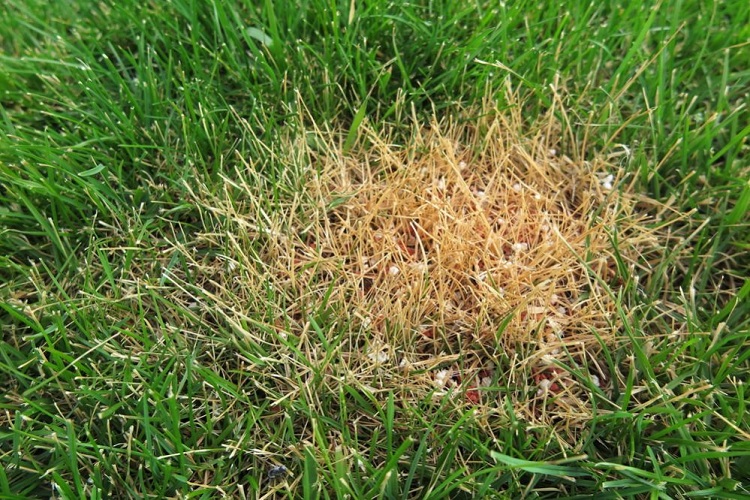
If you’ve used too much fertilizer, you might realize your error immediately and be able to wash it off without any damage being done.
For those times when you don’t realize until later that you’ve over-fertilized, these are some of the consequences your lawn will face:
- Messes with the pH balance: Adding too many nutrients to your lawn is never a good thing. The pH balance of the soil beneath your lawn is crucial to the health of the grass, and when you throw this off with excess fertilizer, you’ll start to notice bad signs. Regular soil testing can ensure that you keep the pH balance in check and only apply nutrients that the lawn is lacking.
- Burns the lawn: Fertilizer burn is one of the most common issues gardeners face, and you’ll be able to see the signs by checking for discoloration on the grass. If you see yellow, brown, or black streaks and patches following a recent fertilizer application, you’ve probably used too much.
- Causes excessive growth: Although excess growth might sound good, it means more maintenance for you. not only will you need to mow your lawn more, but you’ll be feeding the weeds in the area as well, and causing more leaf and thatch growth.
- Creates issues with drainage: Saturating the grass with fertilizer can drown the grass and cause lingering wetness that ends up rotting the roots or spreading mold and fungus. If the roots are too moist, they won’t be able to soak up water, which will lead to water pooling on your lawn.
Fixing An Over Fertilized Lawn
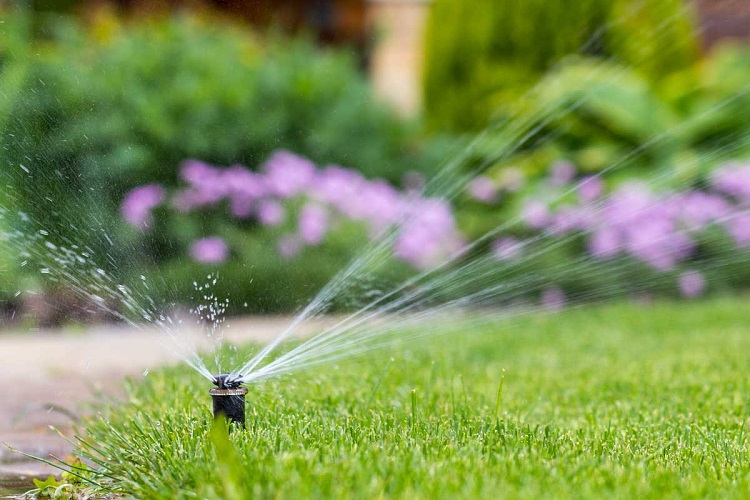
After fertilizing your lawn, you may notice some of the aforementioned warning signs that indicate you’ve applied too much. In extreme cases, there may be little that you can do, but usually, you should be able to reverse the damage.
The best approach is watering the lawn and affected area so that the excess fertilizer is washed out, but it’s a detailed method that has to be done just right.
Our guide to reversing lawn fertilizer burn can be found here, giving you everything you need to restore your lawn to its former glory.
Feeding Your Lawn Just Right
Applying fertilizer should be a part of every healthy lawn’s maintenance schedule, but like any other aspect of lawn care, it requires precision.
Before using a new fertilizer, make sure you understand what’s recommended for its application, otherwise, you could be struggling to reverse the damage to your once beautiful lawn.
Related Questions
The selection of lawn fertilizers out there today can be enough to overwhelm anyone, so learning the basics of how to choose the right one is important.
To help you figure out the best fit for your lawn, we’ve answered some FAQs about lawn fertilizers that will equip you with some knowledge.
Can I Use 10-10-10 Fertilizer on My Lawn?
10-10-10 fertilizer features equal parts of nitrogen, phosphorus, and potassium, so it’s suitable for some types of established lawns.
Although not the most common ratio for lawns, a higher count of nitrogen can be beneficial for grass, but a soil test done before fertilization is always recommended.
What Are the Main Ingredients in Fertilizers?

Most fertilizers will display a ratio of nutrients listed as NPK, which stands for nitrogen, phosphorus, and potassium, as these are the key ingredients for plant growth.
In addition to these essential nutrients, you might also find ingredients called micronutrients which include things like zinc and assorted metals, among other materials.
Can You Use Urea on Your Lawn?
Urea contains a high amount of nitrogen which can be hugely beneficial for grass when applied correctly.
The biggest benefit of using urea as a lawn fertilizer is that the grass will grow greener once the nutrients are absorbed which makes the lawn look a lot healthier overall.
Resources:
